 Petzlover
Petzlover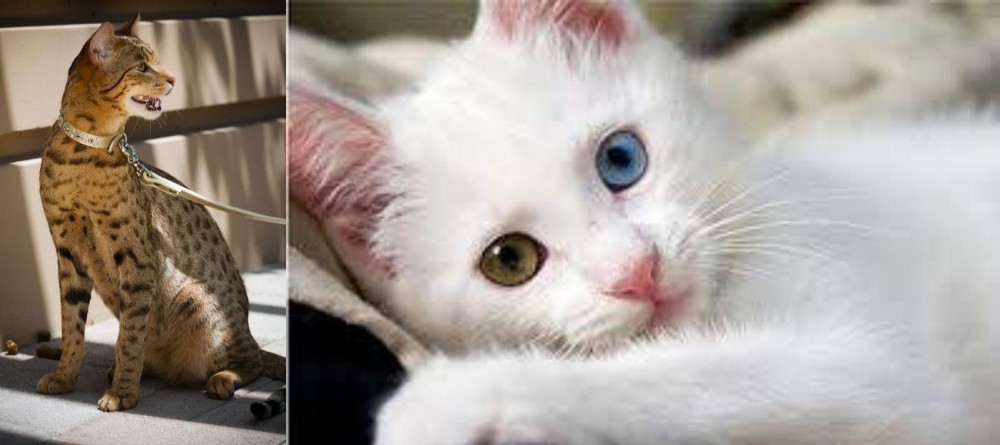 Ashera is originated from United States but Van Kedisi is originated from Turkey. Both Ashera and Van Kedisi are having almost same weight. Ashera may live 5 years more than Van Kedisi. Ashera may have less litter size than Van Kedisi. Both Ashera and Van Kedisi requires Moderate Maintenance.
Ashera is originated from United States but Van Kedisi is originated from Turkey. Both Ashera and Van Kedisi are having almost same weight. Ashera may live 5 years more than Van Kedisi. Ashera may have less litter size than Van Kedisi. Both Ashera and Van Kedisi requires Moderate Maintenance.
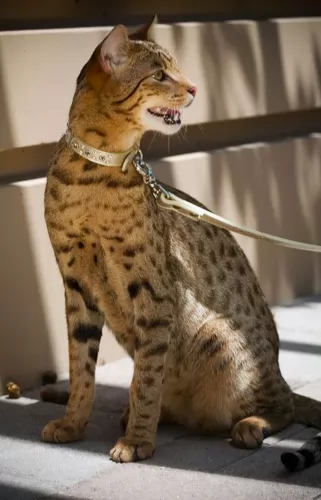 Hailing from the USA, and looking similar to the Savannah Cat, the Ashera is a hybrid breed of cat - an exotic domestic cat known as a designer cat that came about by crossbreeding the African Serval and the Asian Leopard cat.
Hailing from the USA, and looking similar to the Savannah Cat, the Ashera is a hybrid breed of cat - an exotic domestic cat known as a designer cat that came about by crossbreeding the African Serval and the Asian Leopard cat.
In fact, the cat was developed fairly recently through genetic manipulation and by the Lifestyle Pets laboratory. Also, some domestic cat was added to the mix as well, giving the cat a beautiful spotted coat similar to that of a leopard as well as some stripes.
Lifestyle Pets stopped producing these cats in 2008 so they’re hard to come by and are very expensive.
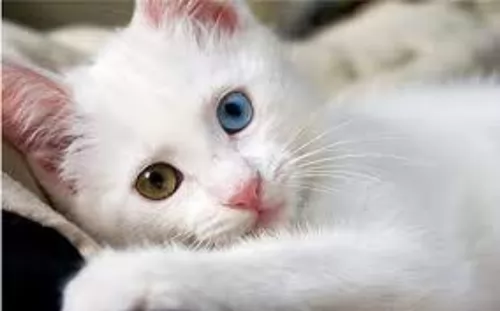 The Van Kedisi cat or Cat of Van as it is also known is a domestic cat that hails from the Lake Van region of Turkey.
The Van Kedisi cat or Cat of Van as it is also known is a domestic cat that hails from the Lake Van region of Turkey.
There are historians who agree that the domestic cat originated in Egypt. The actual cat was developed in the United Kingdom from a host of cat types from Turkey. During the late 1990s the Van Cat became an informal municipal symbol of the city.
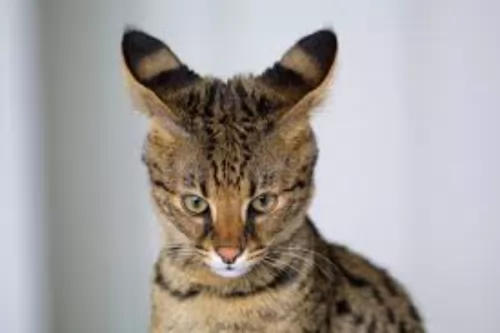 The Ashera cat has large ears with stripes and which are slightly rounded at the top. The eyes are a beautiful greenish-yellow shade.
The Ashera cat has large ears with stripes and which are slightly rounded at the top. The eyes are a beautiful greenish-yellow shade.
It's a large cat and can weigh as much as 14kg. The length of the body is long too and can be more than one meter in length. The cat is tall and if it stands up on its hind legs, it will be able to put its front paws on the shoulders of an adult.
People have always fancied owning such a large ‘domestic’ cat. There are different kinds of Ashera cats – the hypoallergenic one, the common Ashera, the snow Ashera, and the royal Aashera which looks much like the common Ashera but just a more rare type.
The Ashera is a very intelligent, independent cat and likes to climb, being a very playful cat, enjoying the company of children.
Because of its wild side, it's always on the lookout for prey. In spite of the cat’s size, it is an amicable cat and will even enjoy going on a walk with a leash. It’s not your traditional aloof cat and is both sociable and vocal and some people liken them to dogs.
Even though the cat enjoys the company of its human family, it doesn’t mind being left alone.
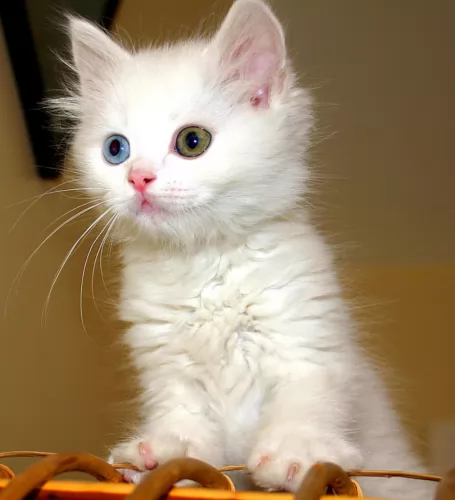 The Van Kedisi cat is a large feline with a soft, silky white coat, which he often sheds in the Summer. There is usually color on the head and tail – a yellow apricot color. The coat is descibed as seni-long.
The Van Kedisi cat is a large feline with a soft, silky white coat, which he often sheds in the Summer. There is usually color on the head and tail – a yellow apricot color. The coat is descibed as seni-long.
He can reach up to 10kg in weight. The cats are lean and long-legged and they also like to swim. The eyes are almond-shaped eyes and are often odd-colored. One eye might be green and the other blue.
Van Kedisi cats have a strong wild side to them, but in spite of this they love getting attention from their human owners. In fact, they demand it or else they can become disgruntled. It's the kind of cat that can adapt to new environments and he is intelligent enough to be able to be trained.
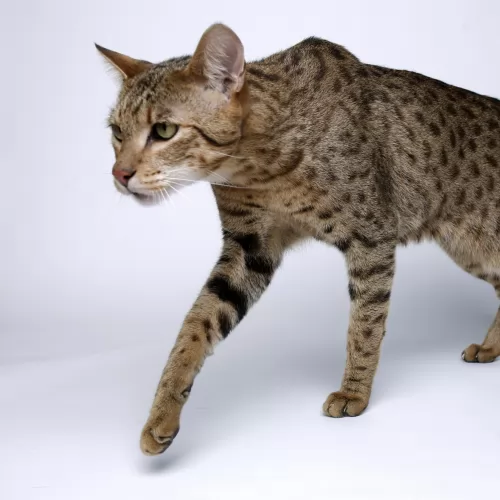 The Ashera cat is beautiful alright but you might battle to get hold of one and they cost a fortune too, being the rare breed it is.
The Ashera cat is beautiful alright but you might battle to get hold of one and they cost a fortune too, being the rare breed it is.
Hybrid cats mean that the breeding of cat species that would never have mated in the first place.
Wild cat breeds belong in the wild. They’re solitary by nature and if they battle to adjust to being in a social setting they land up in a shelter, abandoned as ‘bad news’. People aren’t clever tampering with nature particularly when it’s just to feed the ego of humans who want something unusual and exotic that nobody else has.
There are pet owners who are willing to spend enormous sums of money to own a rare cat such as the Ashera.
If you want an Ashera, there are just a few kittens being made available each year. One thing is sure, they make splendid pets, being playful, loyal, intelligent, and affectionate.
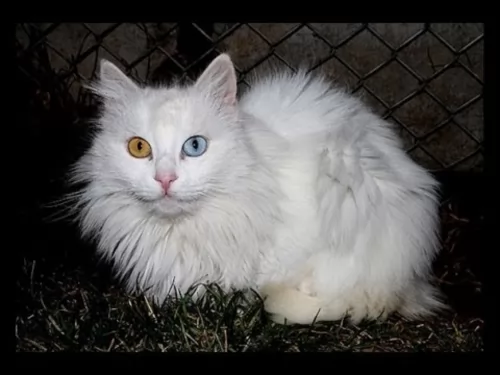 They are lively cats and love playing games with their humans. They will need stimulation from interactive toys. He also loves to leap up onto high perches and watch things from his elevated position.
They are lively cats and love playing games with their humans. They will need stimulation from interactive toys. He also loves to leap up onto high perches and watch things from his elevated position.
If you have decided to have a Van Kedisi in your home, expect things to joyful and entertaining as this cat likes to build a strong bone with his human owners.
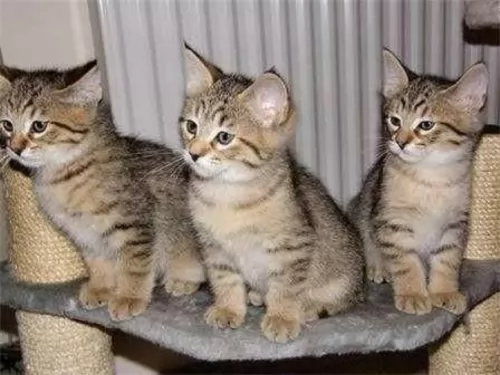 The scientists involved with the development of this cat tell us that it can reach up to 25 years of age.
The scientists involved with the development of this cat tell us that it can reach up to 25 years of age.
It’s a new cat breed and at this time there are no common diseases that affect this beautiful feline.
Remember that these cats come with an insurance policy and this means that the cat’s veterinary visits will be covered for the entire first year of its life. Your Ashera cat will also be vaccinated and chipped and the cat will have been spayed or neutered before he comes to you.
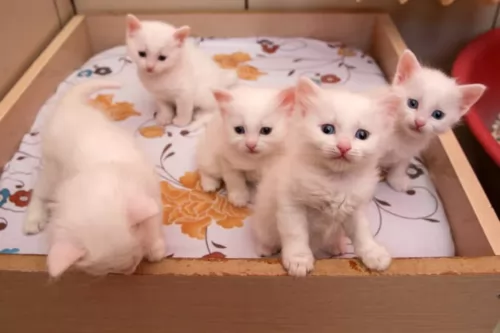 A healthy meat diet for your cat is like a ticket to good health. Cats are carnivores and they rely on you to supply them with food high in protein.
A healthy meat diet for your cat is like a ticket to good health. Cats are carnivores and they rely on you to supply them with food high in protein.
Cats battle to absorb protein derived from plants. Learn to check your food labels to ensure the food contains animal meat. Meat from chicken and tuna is good.
Regular visits to the vet when you suspect that your cat is ill will give you the chance to catch any diseases in their early stages.
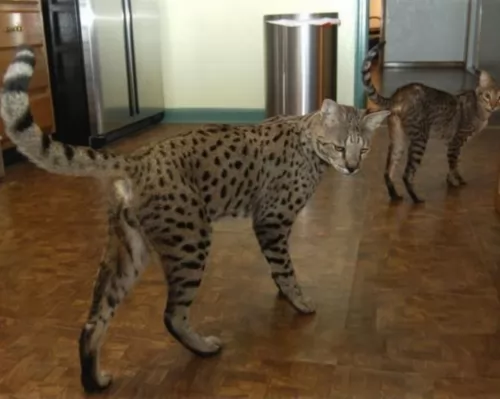 The Ashera doesn’t need any special food as they will eat the same cat food that your other cats eat. If you feed your cat commercially manufactured food, make sure its food that is of a high quality.
The Ashera doesn’t need any special food as they will eat the same cat food that your other cats eat. If you feed your cat commercially manufactured food, make sure its food that is of a high quality.
Those who have owned an Ashera cat, say tthat looking after an Ashera is much the same as lookijg after your regular domestic cat,
These cats like warmth so make sure you provide him with a warm blanket in his sleeping area.
You won’t have to worry about spaying or neutering your Ashera cat, as they are sterile. The ony place you can buy this cat is from the Lifestyle Pets laboratory. The laboratory implants a chip into the cat and they also undertake to vaccinate the cat for a year.
It’s a low maintenance cat and you can brush the short coat from time to time. Ensuring a good diet will bring about a lustrous, healthy coat.
The cat is intelligent so it will require toys that get him thinking and working things out. Also supply the Ashera with a scratching post.
They Ashera will need the best kind of cat food there is and you will want to ensure he has a good intake of protein and fats to maintain his gorgeous coat and his muscles.
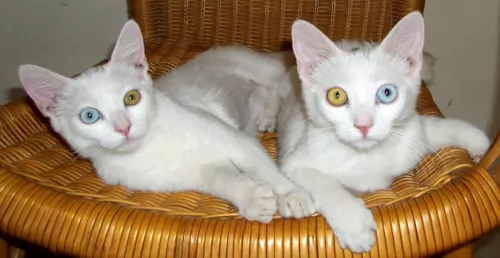 Brush your Van Kedisi each week because the semi longhair can become matted and tangled if not brushed each week.
Brush your Van Kedisi each week because the semi longhair can become matted and tangled if not brushed each week.
The Van Kedisi will need to be vaccinated. As a kitten he will need to be vaccinated against deadly cat diseases. While at the vet he will also be dewormed.
As your cat matures, you will need to make sure that he is free from parasites. Ticks, fleas, and heartworm can cause havoc with your pet and the vet can advise you on a treatment plan.
Have your cat neutered or spayed as not only will it prevent unwanted kittens, but the procedure can have health benefits for your cat too. It can eliminate the possibility of your cat getting some of the many cancers there are. Spaying and neutering also has a positive impact on your cat’s personality.
These are big, strong cats and the temptation will be to overfeed him. They enjoy their food and can easily put on weight. Obesity can bring about many different diseases in your cat.
It is up to you as a responsible cat owner to ensure your ca doesn’t put on a lot of weight but rather maintains a healthy weight. You should also make sure that your feline friend gets regular exercise through playing, walking, and even swimming. These cats enjoy a swim, particularly when it is with their human owners.
Provide your cat with attention and play with him every day. They are playful, intelligent cats and it boosts his morale to have his favorite human playing with him.
Allow opportunities for scratching and climbing. The Van Kedisi loves to climb and scratch – two natural behaviors of cats. Supply him with a scratching post and a climbing tree to get the exercise he needs.